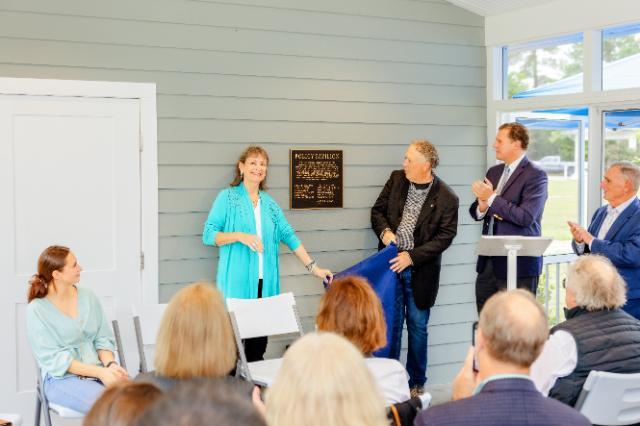Bates-Speakers Series
Longwood’s Professor of Anthropology and Archaeology, Dr. Brian D. Bates, will present “Archaeological Sites at the Water’s Edge: Understanding the Threat to Our Past,” on Thursday, June 27 at 3 p.m. as the fourth in the 2019 Hull Springs Speakers Series.
The talk is free and open to the public, but pre-registration is recommended as seating is limited. Please click here to register. link expired
Understanding the Threat
Where archaeological sites are increasingly threatened by the effects of a changing climate, the old model of preservation in place is no longer sustainable. Effective stewardship of our shared cultural heritage demands that we understand the threat and direct our efforts to the most vulnerable archaeological sites first.
Nowhere in Virginia are the effects of climate change more apparent than along the shoreline of the Chesapeake Bay, and nowhere else is scientifically derived data on those impacts more urgently needed. To generate this data, the Institute of Archaeology developed the Longwood Vulnerability, Potential, and Condition (VPC) Assessment method and applied it to the Hurricane Sandy Shoreline Survey in Lancaster, Northumberland, Middlesex and Mathews Counties.
The Longwood VPC Assessment method provides a powerful tool for making informed, data-driven management decisions about archaeological sites and the level of threat to which each may be subjected. This method triangulates the data from site vulnerability to quantify annual shoreline change rates, potential for undocumented resources through predictive modeling of the study area, and the observed condition of known sites.
Professional Biography
Bates is the Simpson Distinguished Professor of Anthropology and Archaeology at Longwood University where he has been a faculty member since 1994. He founded the Longwood Institute of Archaeology and directs the Dr. James W. Jordan Archaeology Field School at Longwood. He received both his M.A. and Ph.D. in Archaeology (ceramic period settlement patterns of the Virgin Island Group) from the Institute of Archaeology, University of London. Bates has conducted field work in Virginia, Great Britain, the British Virgin Islands and Barbados. His research interests include settlement patterns, the Ceramic Periods in the Caribbean and Virginia, complex societies, and the threats to archaeological sites along the shores of the Chesapeake Bay.
Bates’ research has been featured in a number of printed magazines and newspapers, including Smithsonian, Welcome, Stars and Stripes, The Washington Post, and television news features, including CNN. Along with his late colleague, Dr. Peter Drewett, Bates identified a large prehistoric ceremonial ball court on the island of Tortola – the first of its kind in the Lesser Antilles. His many projects throughout the Commonwealth of Virginia include locating Thomas Jefferson’s Lost Courthouse at Buckingham, his long-term research project at the Late-Woodland Period Sappony Indian Village known as the Wade Site, and his research into the effects of shoreline change on archaeological sites.



